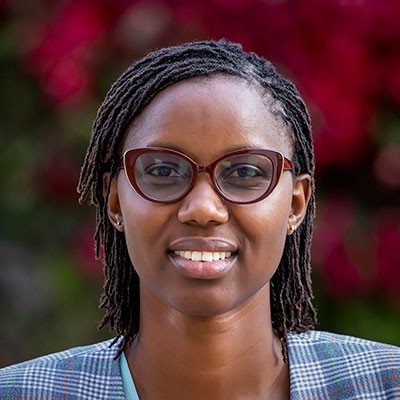ESRAG is thrilled to invite teachers worldwide to empower students as climate leaders through the Climate Innovation Challenge. By registering online by Jan. 20, 2023, teachers can access free curriculum for ages 8 through secondary school. The six lessons introduce students to climate change, mitigation and adaptation strategies, reputable sources, project design, and powerful visual storytelling. Students choose a solution that fits their local community, then create a 2-4 minute video about it, due March 19. The 2023 Challenge concludes with a project showcase and award ceremony in May.
The goal is to engage students’ leadership and amplify their voices to inspire others. “Our priority is to give students the chance to discover their own agency,” says Phil Lucero, education director of CAVU, the American non-profit that created the initiative. “Students are passionate about addressing climate change. It’s not fair to them to say they are going to ‘inherit’ this crisis. We are engaging them in the problem of our time.” CAVU’s team draws on decades of experience in photojournalism and environmental education to support this program, now in its fourth year. It’s currently being used by teachers in 14 states across America and in Kenya. The project leverages the skill contemporary youth already have in visual content creation, from music videos to animation.
The Climate Innovation Challenge is an opportunity for Rotarians who teach or influence local schools to offer this learning adventure to students worldwide. Please use this ESRAG form to start connecting your community’s or country’s teachers to this empowering learning experience. Kenyan educator and CAVU’s Africa Education Liaison Mercy Wambui (shown in picture here), a member of the Lavington Eco Club in Nairobi, has proven that this project can work across language, culture, technology, and economics.
She thrilled the audience at ESRAG’s Nov. 16 Projects + Webinar by describing her successful pilot of the project with students in the school she worked in previously. Eight projects were submitted from different schools in Kenya in the 2021/2022 cycle. Working with fellow educators, she has already recruited 50 teachers – and counting – for the 2022/2023 Challenge. “The curriculum is very easy to use and interpret with examples students can relate to,” she says. “It fits beautifully with Kenya’s education reform, which emphasizes experiential learning.”
Currently the CAVU team is accepting videos in English or Spanish, but if you help ESRAG find passionate climate educators in other countries, that will greatly expand the reach of the Climate Innovation Challenge. Share this link with them so they can register, see the curriculum, and tell other teachers about it. CAVU’s staff would love to see regional contests and showcases in other languages. Mercy Wambui, for example, works with teachers in Swahili and a number of other Kenyan languages. Clubs or Districts could award grants to help support additional regional coordinators to recruit and assist teachers in specific languages and adjacent time zones.
Don’t wait to tell teachers you know to register for the Climate Innovation Challenge so they can see the curriculum themselves, and use it!

Excellent initiative…I was waiting for this to happen!
Our school SV Global would be interested to take this forward. Our Learners and Educators are already working towards a sustainable environment.
Our school SV Sr Sec School would be interested to take this forward. Our Learners and Educators are already working towards a sustainable environment.
Dear Neeraj, Rati, and Manasa,
It’s exciting to read your comments and I know the world will benefit if your students create videos about their work. Please let other teachers know about the Climate Innovation Challenge.
Vrikshaa school and our students would like to join you and spread the awareness. By their understanding.
Thank you, Rajalakshmi! Please share the story and the links for teachers to register for the curriculum. So excited you are participating!
Hi Ariel Miller:
Lovely Initiative.
I will be taking it forward with the Trustees, Principals, and Teachers of Schools (connected to Interact Community). I have communicated to Minakshi of Esrag.
To get better traction, please communicate the same to youngleaders@rotary.org (It has a repository of the Interact Clubs, Pan Globe).
Rtn Arup Sinha
RC Ahmedabad Greater-D-3054
India
Vice Chair-Environment (21-23)
Member-ESRAG South Asia
Club Chair-Interact